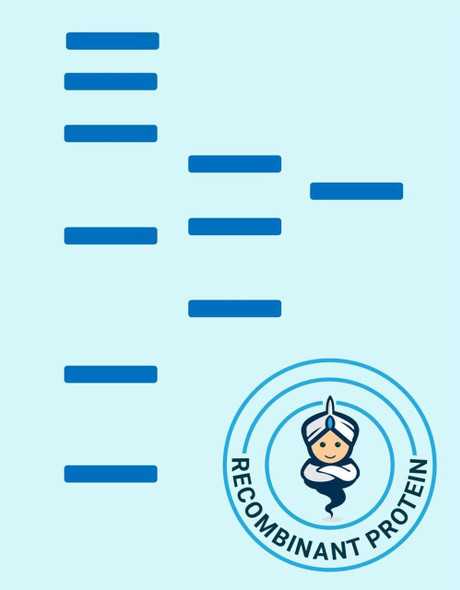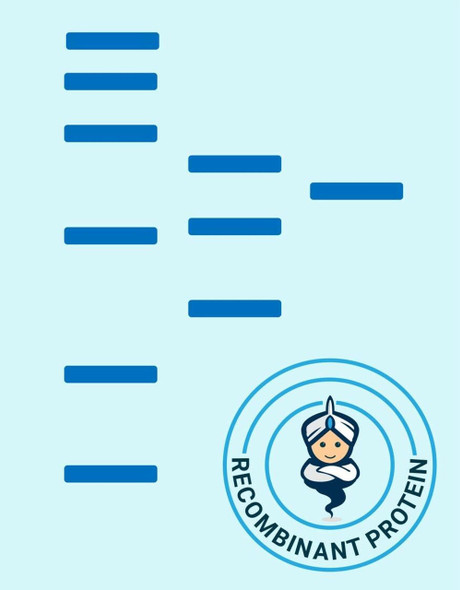Description
| Product Name: | Human CD27L Recombinant Protein (N-His) (active) |
| Product Code: | RPES6430 |
| Size: | 20µg |
| Species: | Human |
| Expression Host: | E.coli |
| Synonyms: | soluble CD27 Ligand, sCD27 Ligand, TNFSF7, CD70 |
| Mol Mass: | 21.95 kDa |
| Tag: | N-His |
| Purity: | > 98 % as determined by reducing SDS-PAGE. |
| Endotoxin Level: | < 0.01 EU per μg of the protein as determined by the LAL method. |
| Bio Activity: | Measure by its ability to induce IL-8 secretion in human PBMCs. The ED50 for this effect is < 0.6 ng/mL. |
| Sequence: | MPEEGSGCSVRRRPYGCVLRAALVPLVAGLVICLVVCIQRFAQAQQQLPLESLGWDVAELQLNHTGPQQDPRLYWQGGPALGRSFLHGPELDKGQLRIHRDGIYMVHIQVTLAICSSTTASRHHPTTLAVGICSPASRSISLLRLSFHQGCTIASQRLTPLARGDTLCTNLTGTLLPSRNTDETFFGVQWVRP |
| Accession: | A0A0U5JA32 |
| Storage: | Generally, lyophilized proteins are stable for up to 12 months when stored at -20 to -80°C. Reconstituted protein solution can be stored at 4-8°C for 2-7 days. Aliquots of reconstituted samples are stable at < -20°C for 3 months. |
| Shipping: | This product is provided as lyophilized powder which is shipped with ice packs. |
| Formulation: | Lyophilized from sterile PBS, pH 8.0 Normally 5 % - 8 % trehalose, mannitol and 0.01% Tween80 are added as protectants before lyophilization. Please refer to the specific buffer information in the printed manual. |
| Reconstitution: | Please refer to the printed manual for detailed information. |
| Background: | CD70, a member of the tumor necrosis factor superfamily, is restricted to activated T-and B-lymphocytes and mature dendritic cells. Binding of CD70 to its receptor, CD27, is important in priming, effector functions, differentiation and memory formation of T-cells as well as plasma and memory B-cell generation. Tight control of CD70 expression is required to prevent lethal immunodeficiency. By selective transcription, CD70 is largely confined to activated lymphocytes and dendritic cells (DC). As a type II transmembrane receptor, CD70 is normally expressed on a subset of B, T and NK cells, where it plays a costimulatory role in immune cell activation. Immunohistochemical analysis of CD70 expression in multiple carcinoma types. The restricted expression pattern of CD70 in normal tissues and its widespread expression in various malignancies makes it an attractive target for antibody-based therapeutics. Investigations to exploit CD70 as a cancer target have lead to the identification of potential antibody-based clinical candidates. |






